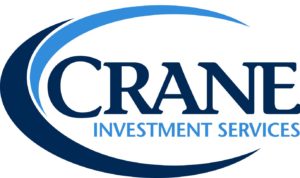Tax-free withdrawals and no required minimum distributions (RMDs) at any age are two characteristics that make Roth individual retirement accounts (IRAs) popular with investors. Current relatively favorable tax rates have made rollovers from traditional IRAs an option to consider. But, as with any investment, it’s important not to rush into a rollover without first considering the possible effects of such a move.
Roth IRAs in a Nutshell
Contributions to a traditional IRA are made before income taxes are deducted, allowing your savings to accumulate tax deferred until you withdraw the money, presumably at retirement. You must begin taking distributions from traditional IRAs and other tax-deferred retirement accounts once you reach age 72.**
Alternatively contributions to a Roth are made with after-tax dollars, so withdrawals of earnings are tax free after age 59 1/2, as long as you’ve had the Roth IRA for five years. (Roth contributions can be withdrawn tax free at any time, but an early withdrawal penalty may apply.) And you are not required to take distributions during your lifetime so, if you don’t need the money, you can pass along the Roth account to your heirs.
The Taxing Details
If you’re thinking of rolling over funds from a traditional IRA to a Roth IRA, make sure you have sufficient funds to pay the taxes on the amount you roll over – preferably without tapping into the account. Keep in mind that the conversion could push you into a higher income tax bracket, because that money will be taxed as income in the year you roll it over. If you’re enrolled in Medicare Part B, the income from converting a traditional IRA could also result in a high-income surcharge on your premium in a future year.
When a Rollover Might Make Sense
If you’ve experienced a drop in value of your traditional IRA recently, rolling over the funds to a Roth IRA while the value of your investments is down may lower the tax hit.
*Roth IRA withdrawal and penalty rules vary depending on your age, how long you’ve had the account and other factors.
**Taxpayers born before June 30, 1949 must still use age 70 1/2 to start taking RMDs.
Crane Investment Services advisors are registered representatives of CUNA Brokerage Services, Inc. Representatives are registered, securities sold, advisory services offered through CUNA Brokerage Services, Inc. (CBSI), Member FINRA/SIPC, a registered broker/dealer and investment advisor, which is not an affiliate of the credit union. CBSI is under contract with the financial institution to make securities available to members. Not NCUA/NCUSIF/FDIC insured, May Lose Value, No Financial Institution Guarantee. Not a deposit of any financial institution. CUNA Broker Services, Inc., is a registered broker/dealer in all fifty States of the United States of America.
FR-3640367.1-0621-0723



